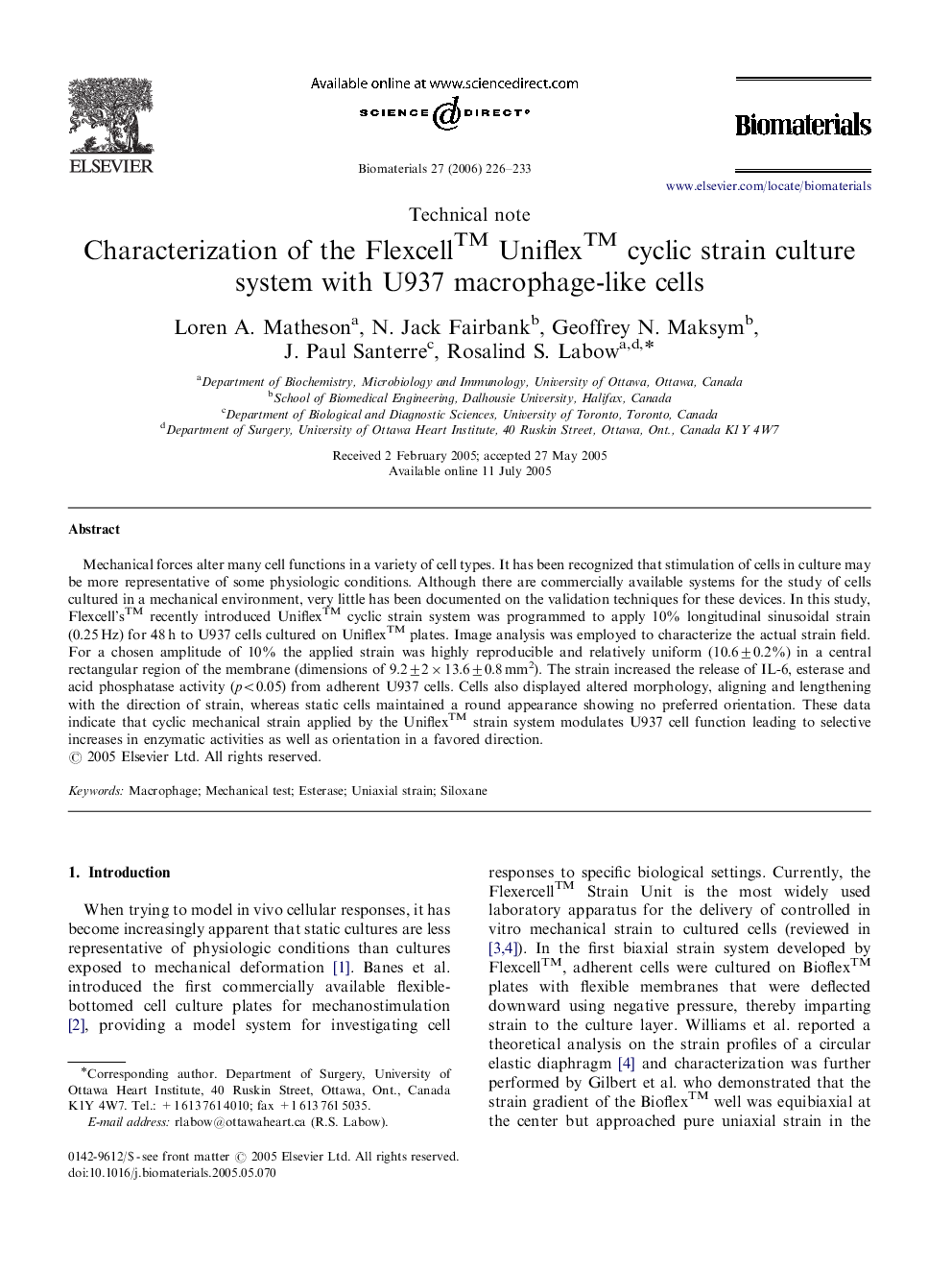| Article ID | Journal | Published Year | Pages | File Type |
|---|---|---|---|---|
| 12298 | Biomaterials | 2006 | 8 Pages |
Mechanical forces alter many cell functions in a variety of cell types. It has been recognized that stimulation of cells in culture may be more representative of some physiologic conditions. Although there are commercially available systems for the study of cells cultured in a mechanical environment, very little has been documented on the validation techniques for these devices. In this study, Flexcell's™ recently introduced Uniflex™ cyclic strain system was programmed to apply 10% longitudinal sinusoidal strain (0.25 Hz) for 48 h to U937 cells cultured on Uniflex™ plates. Image analysis was employed to characterize the actual strain field. For a chosen amplitude of 10% the applied strain was highly reproducible and relatively uniform (10.6±0.2%) in a central rectangular region of the membrane (dimensions of 9.2±2×13.6±0.8 mm2). The strain increased the release of IL-6, esterase and acid phosphatase activity (p<0.05) from adherent U937 cells. Cells also displayed altered morphology, aligning and lengthening with the direction of strain, whereas static cells maintained a round appearance showing no preferred orientation. These data indicate that cyclic mechanical strain applied by the Uniflex™ strain system modulates U937 cell function leading to selective increases in enzymatic activities as well as orientation in a favored direction.
